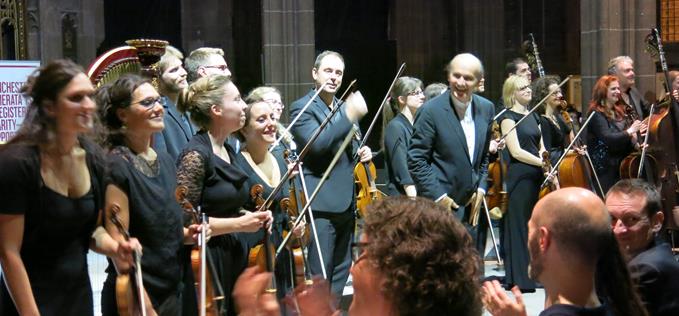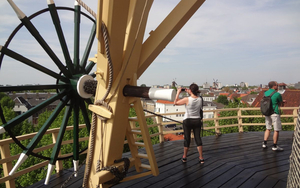THE cathedral proved, as always, an atmospheric venue for the latest Camerata adventure - this time featuring a collaboration with actor David Fielder in Philip Glass’s string quartet Company, based on a dramatisation of a text by Samuel Beckett, and a performance of Astor Piazzola’s Four Seasons of Buenos Aires, a tango-influenced, tongue-in-cheek tribute to Vivaldi.
The music is powerfully evocative of the New World
The opening Glass quartet had been beefed up for a larger string orchestra, its haunting, accumulative repetitions interspersed with the touching, witty Beckett narrative of a lonely old man’s struggle with death, truth and identity.
Glass’s work was originally conceived as four passages of incidental music to accompany a dramatisation of Beckett’s text. It worked well here to orchestrate the subtly changing moods of the story told by an itinerant David Fielder, who moved among the audience like a gloomy Everyman piecing together shreds of his individual story.
Energy levels rose with the Paolozzi Las Cuatro Estaciones Porteñas, the orchestral pyrotechnics augmented by the virtuoso accordion playing of the young Martynas Levickis. Former winner of Lithuania’s Got Talent and currently top of the UK Classical Charts with his eponymous album, his versatility, vigour and precision raised the stakes in what occasionally felt like programme music.
 The Sequel, Manchester Cathedral
The Sequel, Manchester CathedralArvo Pärt’s sparse, beautiful Festina Lente began the second half. Scored for strings with ad-lib harp, it uses the technique (derived from Medieval and Renaissance music) of the mensuration canon, where different instruments play the same material at different speeds. The effect here was a beautiful rising resonant harmony which slipped imperceptibly back into the silence which Pärt uses so well. It also echoed the opening Glass/Beckett piece uncannily. The quality of the strings under Gabor Takács-Nagy’s sensitive conducting was precise and understated in both pieces.
Dvorák’s American string quartet (again given orchestral treatment) was a superb finale. Although the composer insisted that he never quoted actual spirituals or Native American dances, the music is powerfully evocative of the New World, its pentatonic scale recreating the folk spirit of traditional forms. The yearning slow movement yields to a scherzo which echoes, especially in the chirping of the violin, Dvoràk’s fascination with American birdsong.
It is not surprising that this work, the first great string quartet to be written in the United States, became a model and benchmark for a new generation of American composers. It was also an excellent finale to another excellent Camerata programme.














